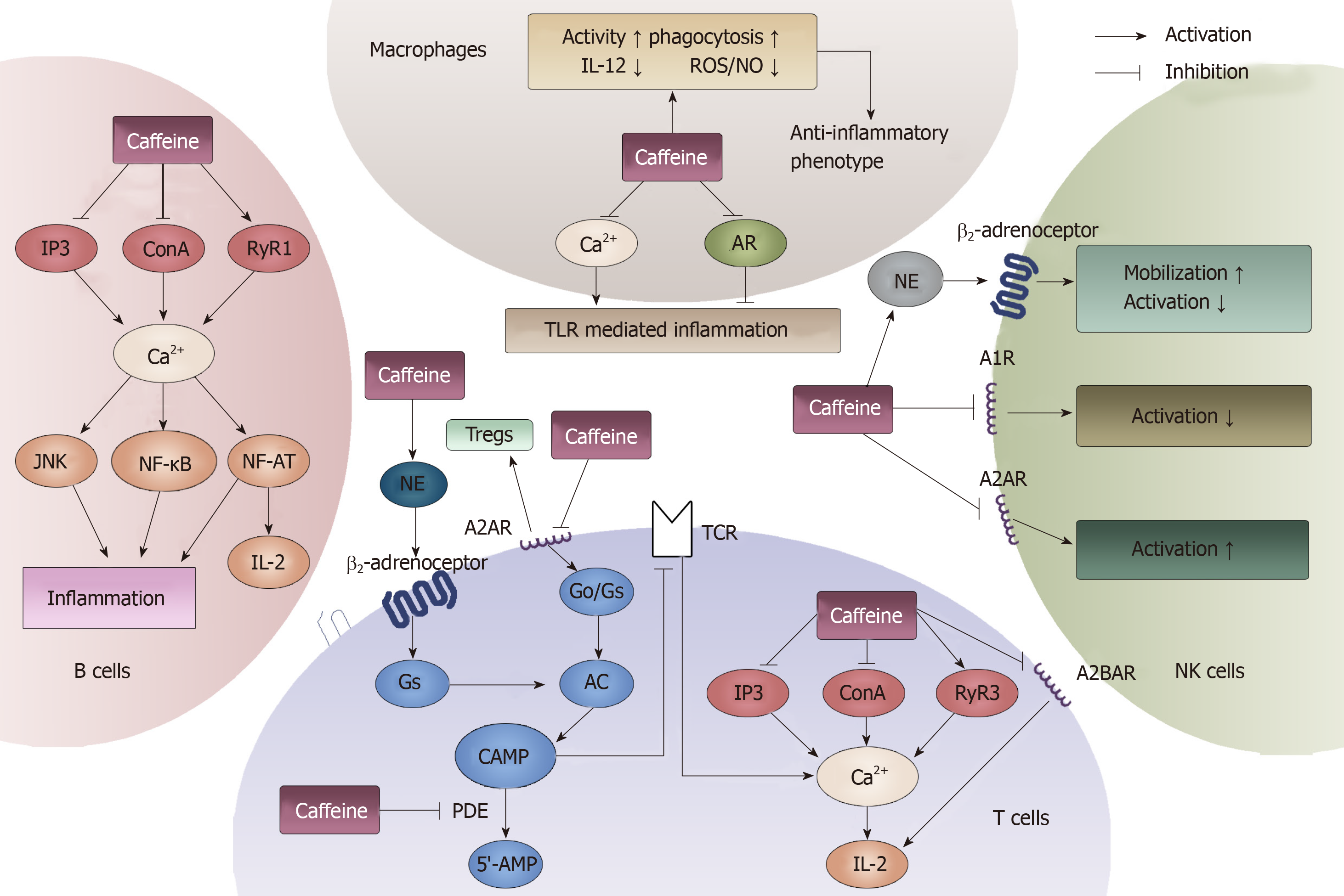Copyright
©The Author(s) 2020.
World J Gastrointest Oncol. Feb 15, 2020; 12(2): 149-172
Published online Feb 15, 2020. doi: 10.4251/wjgo.v12.i2.149
Published online Feb 15, 2020. doi: 10.4251/wjgo.v12.i2.149
Figure 9 General effects of caffeine on lymphocytes and macrophages.
Four types of immune cells can be influenced by caffeine. In T cells, cAMP and Ca2+ can be modulated by caffeine through the binding of adenosine receptors, modulating norepinephrine and inhibiting phosphodiesterase. In B cells, caffeine can influence the immune response through interacting with Ca2+. In macrophages, caffeine can both inhibit and activate toll-like receptor-mediated inflammation by modulating Ca2+ and binding to adenosine. Furthermore, in natural killer cells, caffeine exerts a dual function on its activation. When it acts on A1R, it inhibits. When it acts on A2R, it induces. Moreover, by stimulating norepinephrine , caffeine can promote the mobilization of natural killer cells. AR: Adenosine receptors; NE: Norepinephrine; PDE: Phosphodiesterase; TLR: Toll-like receptor; NK: Natural killer; IL: Interleukin.
- Citation: Cui WQ, Wang ST, Pan D, Chang B, Sang LX. Caffeine and its main targets of colorectal cancer. World J Gastrointest Oncol 2020; 12(2): 149-172
- URL: https://www.wjgnet.com/1948-5204/full/v12/i2/149.htm
- DOI: https://dx.doi.org/10.4251/wjgo.v12.i2.149









